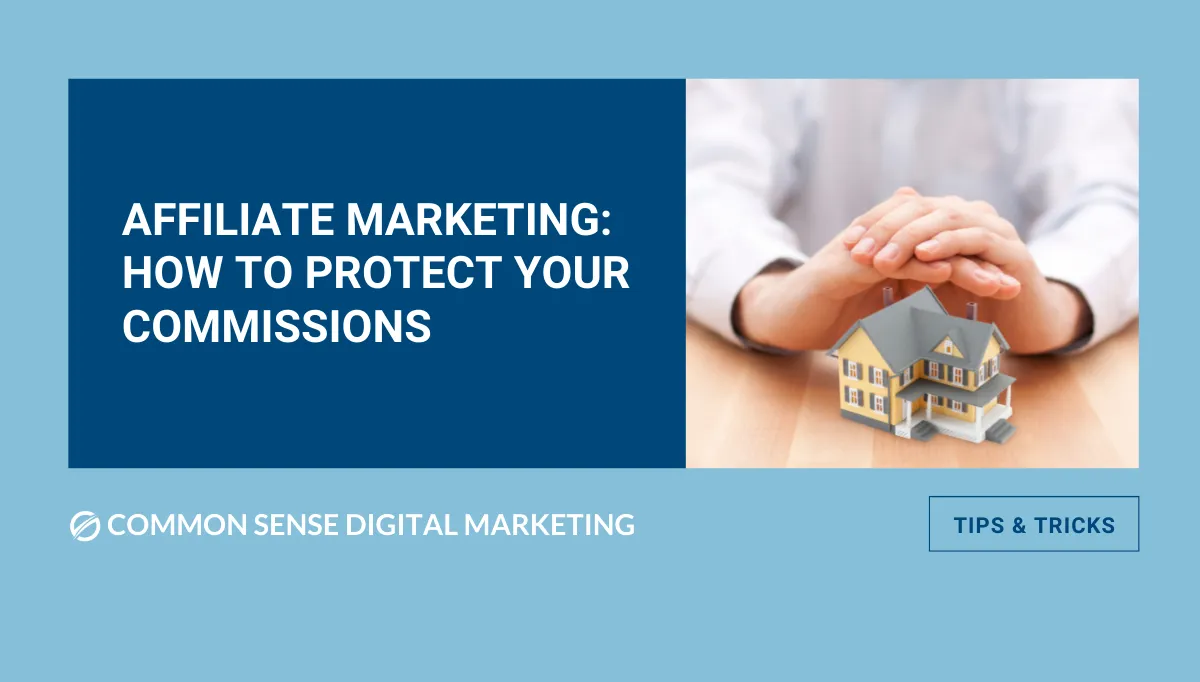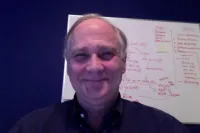Welcome To My Blog!

Affiliate Marketing: How To Protect Your Commissions
When it comes to affiliate marketing, a great number of people are actually doing everything they need to do to make money online except for one thing.
That one thing is PROTECTING their affiliate link.
Let me share with you why this problem exists and three ways you can solve it, beginning today.
The Problem
Here is a sad, but true, fact about affiliate marketing.
When the people who see your advertising know you are promoting an affiliate product they will often be tempted to go around you and just type in the name of the website directly and cheat you out of your commissions.
Why this happens, I don’t know.
Worse yet, some people see an offer you advertise, join the affiliate program themselves and buy under their own link.
Some see this as a legitimate way to get a “discount” on the product.
I could not disagree more. Affiliate programs exist to reward promotion, not give out discounts to those who did no work.
The Solution
The solution is to simply never, and I mean never, use a “naked” affiliate link.
By “naked” affiliate link I simply mean a link that reveals that you are an affiliate.
Let’s take a look at an example, and then I will offer a few solutions.
For this example we will use Clickbank and one of my own products,Follow Up Selling Systems.
A standard affiliate link with Clickbank looks like this.
When you create a Clickbank link you replace the word “affiliate” with your Clickbank nickname and the vendor adds their vendor name.
So my “naked” link for promoting Follow Up Selling Systems would look like this …
In this link, cdpage is my affiliate ID (or nickname) and followupss is the vendor.
Here’s the problem.
Many people who see that link will know it’s an affiliate link, replace the “cdpage” with their Clickbank nickname and get the commission for themselves.
And it’s not just Clickbank that has this issue. Many, if not most, affiliate programs provide links that don’t protect you, the affiliate.
To protect yourself you must “cloak” your link.
Cloaking your link simply means using a link tracker, or redirect service, that produces a link that hides the fact that you are using an affiliate link.
There are many ways to do this. Here are the three I recommend, along with my recommended resources.
Option 1 – A Link Tracking Service
The first thing is to use a cloaking service like HyperTrack.
HyperTracker is my favorite, and a service I have used for many years.
If you use a cloaking service then the person who sees your affiliate link won’t know what product you’re promoting.
They will never see the name of the product.
They will never see the website address of the product you’re promoting.
They will only see your tracking link.
Link trackers will all cloak (or hide) your affiliate link from being too obvious.
So if you use a HyperTracker, or any of the tracking services, you will be cloaking your link.
You can use free trackers like Bit.ly and other trackers like that too but I do not recommend that because the volume of people who are spamming and doing things like that can really put you in jeopardy.
I suggest a high quality paid tracking service like HyperTrack.
Option 2 – A Cloaker on Your Blog
The second thing is that you can use a cloaking script on your own website or blog.
This is a non-technical way to cloak your link and to brand your website at the same time.
My favorite tool for this is called Pretty Link.
If you use a blog, Pretty Link is a plugin that you can install on your blog.
There is a free version that works perfectly well. You can install it from right within your WordPress admin panel.
There is also a paid version if you want more options. I would suggest starting with the free version.
If you use Pretty Link on your blog, you will be able to cloak your affiliate link, it, track clicks and the link you provide to people in your advertising will be your website address.
It’s a win-win-win!
Here is an example. My website address is commonsensedigitalmarketing.com.
Using Pretty Link, I created this cloaked link for Follow Up Selling Systems …
I believe this is the best of all worlds.
You brand your site by putting out links with your site address in them, you track clicks and cloak your link … all free!
Option 3 – A PHP Script
There’s a third way that’s a little bit more complicated and that is to use what is called a PHP redirect.
That’s a little bit more complicated, a little bit more technical, but if you are a person who likes the technical aspect of it then it’s very easy to create a PHP redirect.
What you do is you insert the URL that you want to protect in this little PHP script and then you upload that to your server.
The name you give that PHP file becomes your tracking link.
Again, more complicated than it needs to be, especially in the age of blogging, but if you are a technical type you might enjoy that.
Here is the most important thing.
If you are doing affiliate marketing, by all means protect your affiliate link by either using a cloaking service like HyperTrack or using a cloaking script like Pretty Link. Or, if you are technically inclined, you can use a PHP redirect.
To my way of thinking the third link (the Pretty one) is so much better.
The first link is an obvious affiliate link. The second link is better, but still clearly a tracker, and some people don’t want to be “tracked”. The third link brands my site and gives me click tracking too. All free!
If you begin protecting every affiliate link that you have, I believe that you will see over time that your commissions increase simply because nobody can steal from you and you can track results better.
If you have ever promoted an affiliate offer and wondered why you did not earn more, commission thieves might be to blame.
By using a cloaker on your affiliate links every time you promote, you will stop these thieves in their tracks, know how many clicks you receive for every ad and earn more commissions too.
And that is a beautiful combination indeed!


